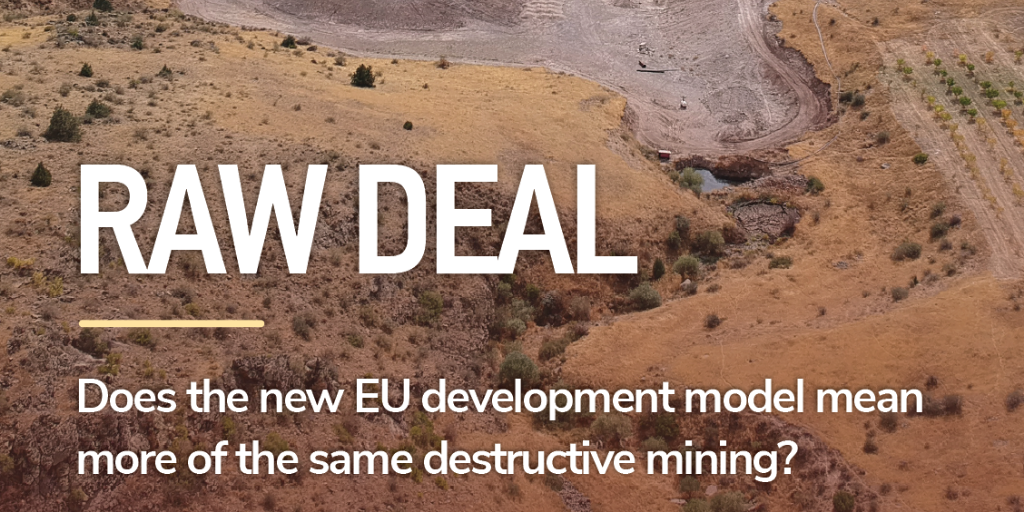Aleksandra Antonowicz-Cyglicka, Fidanka Bacheva-McGrath, Vasil Kadrinov, Zvezdan Kalmar, Ognyan Kovandzhiyski, Vladimir Nedev, Pencho Pandakov, Daniel Popov, Daniyar Serikov, Anelia Stefanova, Borislava Yordanova, CEE Bankwatch Network, 2021
Despite long-term objectives of achieving a circular economy and reducing resource use, the European Green Deal plans to increase mining raw materials to meet demand for clean energy, renewables, and other hi-tech solutions at the forefront of the EU’s green development agenda.
The European Commission has outlined extensive plans for securing access to ICT-related raw materials but mentions little about effectively dealing with risks associated with their extraction. For instance the EU estimates that for electric vehicle batteries and energy storage, it would need up to 18 times more lithium and five times more cobalt in 2030, and almost 60 times more lithium and 15 times more cobalt in 2050.
The Bankwatch report describes cases of environmental destruction, poor working conditions and a lack of sufficient public participation during the planning and implementation of metal mining and smelting operations, often backed by funds from the European Bank for Reconstruction and Development and the European Investment Bank.
In one instance, gold mined in Bulgaria that contains levels of arsenic not permitted in the EU is shipped instead to Namibia for smelting, at the expense of workers’ health.
The report calls on the Commission to provide a clear vision and dedicate funds to overcome the problems related to raw materials mining. The EU should take the following actions to ensure that its new development model is sustainable:
- the reduction of resource use as the underlying principle for any new publicly financed project;
- the use of less-exploitative and toxic-safe technologies;
- the restoration of old mining sites;
- strict and efficient environmental, social and human rights due diligence for mining projects; and
- the right for communities affected by the mines and surrounding facilities to have a say.
Anelia Stefanova, programme director at CEE Bankwatch Network and co-author of the report, said: ‘We welcome the increasing confidence about the feasibility of Europe’s decarbonisation, but we are concerned about the lack of safeguards in place to make it sustainable. The EU, with its financial institutions, cannot attempt to overcome the climate crisis at the expense of local communities, workers’ rights and biodiversity. ”
Daniel Popov, mining expert at Za Zemiata, CEE Bankwatch Network member and co-author of the report, said: “The EU needs to boost its scientific potential and deploy innovative technologies that are not associated with rights abuses and environmental destruction. Europe can move forward from technologies dependent on expensive, impactful and difficult to supply raw materials.”
For additional information please contact:
Anelia Stefanova
Programme director, CEE Bankwatch Network
E-mail: anelias@bankwatch.org
Mobile: +39 3338092492
Aleksandra Antonowicz-Cyglicka
Researcher, CEE Bankwatch Network
E-mail: ola@bankwatch.org
Mobile: +48 601325242
Daniel Popov
National Campaigner, Bulgaria, CEE Bankwatch Network, Za Zemiata
E-mail: dpopov@bankwatch.org
Mobile: +359 886818794
Post submitted by Rosa Hergan, CEE Bankwatch



Recent Comments